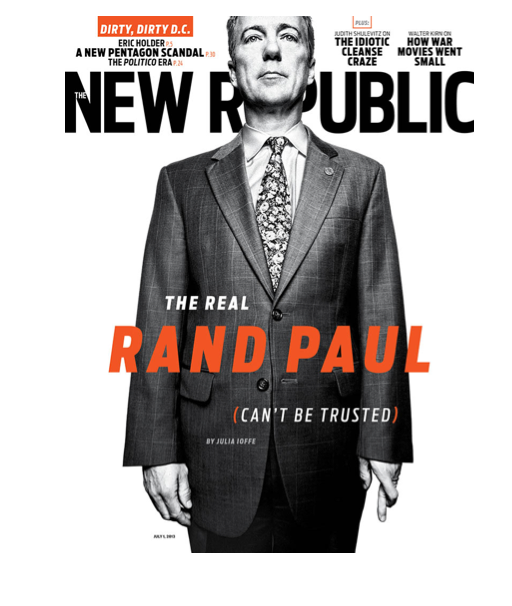In The Atlantic, Conor Friedersdorf looks at the mainstream media’s obsession with Rand Paul’s (to borrow a time-worn term from Canadian politics) “hidden agenda”:
Critiques of democracy are as old as the excesses of the Athenian variety. Here’s a classic: The unmediated masses are as capable of doing an injustice as any aristocracy or tyrant. In America, it’s acceptable to say, as shorthand, that we’re living in a Western liberal democracy. But the fact is that we live in a federal, constitutional republic, because the Framers mistrusted democracy, and the vast majority of Americans retain a great part of that mistrust. We’ve extended the franchise, amended the Constitution to permit the direct election of senators, and we’re likely to eventually abandon the electoral college and elect presidents by the popular vote. But there is broad, deep support for anti-democratic features of our system, like the Bill of Rights.
All of this is totally uncontroversial — unless it is uttered by Senator Rand Paul, the national politician most likely to evoke irrational paranoia from the political press. Serial anti-libertarian Jonathan Chait is the latest to demonstrate this truth in an unintentionally revealing item at New York.
Here’s how he begins:
The most unusual and interesting line in Julia Ioffe’s highly interesting profile of Rand Paul is Paul’s confession, “I’m not a firm believer in democracy. It gave us Jim Crow.” Of course, that’s an awfully strange way to condemn Jim Crow, which arose in the distinctly undemocratic Apartheid South (it was no coincidence that the dismantling of Jim Crow and the granting of democratic rights to African-Americans happened simultaneously).
This is an uncharitable beginning. If a scholar of political thought said of ancient Athens, “I’m not a firm believer in democracy — it required slavery, war, or both, to subsidize the lower classes while they carried out their civic duties,” no one would think that a strange formulation — it is perfectly coherent to talk about democracy in places that didn’t extend the franchise universally, given how the term has been used and understood for two thousand years of political history.
[. . .]
What Chait did is hardly unique. In the political press, it happens again and again: libertarian leaning folks are portrayed as if they’re radical, extremist ideologues, even when they’re expressing ideas that are widely held by Americans across the political spectrum. Here is the absurd cover The New Republic chose for the issue in which the Paul profile appears:
This would seem to imply that, relative to other politicians, the guy who went on Rachel Maddow to discuss the nuances of his take on the Civil Rights Act is the one hiding his “real” self from us. Remember the conservatives who kept saying, “Obama is hiding something — he’s not one of us”? That magazine cover is what it looks like when liberals cave to a similar pathology.




